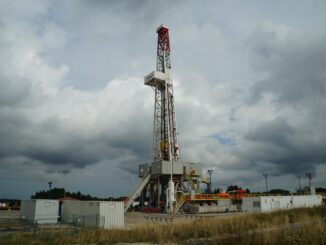
Spot charter rates for the global liquefied natural gas (LNG) carrier fleet fell sharply this week, while European and Asian prices continued to decrease as well.
Last week, the Spark30S Atlantic decreased to $133,750 per day, and the Spark25S Pacific decreased to $103,500 per day.
“LNG freight rates fell sharply week, with a 28 percent week-on-week decrease for Atlantic rates and a 26 percent week-on-week decrease for Pacific rates,” Qasim Afghan, Spark’s commercial analyst told LNG Prime on Friday.
Image: Spark
Afghan said that the Atlantic rate decreased by $37,250 to $96,500 per day, whilst the Pacific rate decreased by $13,500 to $103,500 per day.
In Europe, the SparkNWE DES LNG front month also declined from the last week.
The NWE DES LNG for January delivery was assessed last week at $10.489/MMBtu and at a $0.740/MMBtu discount to the TTF.
“The SparkNWE DES LNG price for January delivery is assessed at $10.206/MMBtu and at a $0.810/MMBtu discount to the TTF,” Afghan said on Friday.
He said this is a $0.283/MMBtu decrease in DES LNG price, and the discount to the TTF widened by $0.07/MMBtu, when compared to last week’s January prices.
Image: Spark
According to Platts data, JKM, the price for LNG cargoes delivered to Northeast Asia, dropped from the last week.
JKM for February settled at $11.935/MMBtu on Thursday.
Platts, part of S&P Global Commodity Insights, said in a report that LNG freight rates out of the US Gulf Coast have fallen to their lowest levels since August as a lack of demand as well as an increasing number of vessels in the spot market cushion prices.
It assessed the USGC LNG freight rate to Northwest Europe and Japan/Korea at $1.27/MMBtu and $2.77/MMBtu, respectively, on December 20.
This freight rate to Northwest Europe fell 9 cents/MMbtu on the day to put it at the lowest since August 31, while the rate to Japan/Korea fell by 18 cents/MMBtu to put levels at their lowest since August 15.
The market points to the current lack of arbitrage opportunities as well as stagnant demand weighing on freight rates, Platts said, adding that the spot market this month has remained relatively depressed compared with previous years.
Despite delays at the Panama Canal, high inventories coupled with milder weather have depressed demand. Additionally, constraints at the Suez Canal due to attacks in the Red Sea have caused companies to redirect their vessels away from the Suez towards the Cape of Good Hope, Platts said.
Kpler said in a separate note that at least eight LNG vessels re-routed away from the Red Sea towards the Cape of Good Hope amid ongoing security risks in the Bab el-Mandeb Strait.
Such moves are costly – adding voyage days and increasing freight costs for several key routes, it said.
For example, on a round-trip basis, a cargo transiting from Qatar to the Netherlands faces an average 38-day journey at a freight cost of $2.2/MMBtu.
The same journey via the Cape of Good Hope increases the voyage by 21 days at an additional freight cost of $0.9/MMBtu, according to Kpler analysis.



